
Politics
19:02, 25-Sep-2017
Where does Europe stand on the Belt and Road?
By John Goodrich
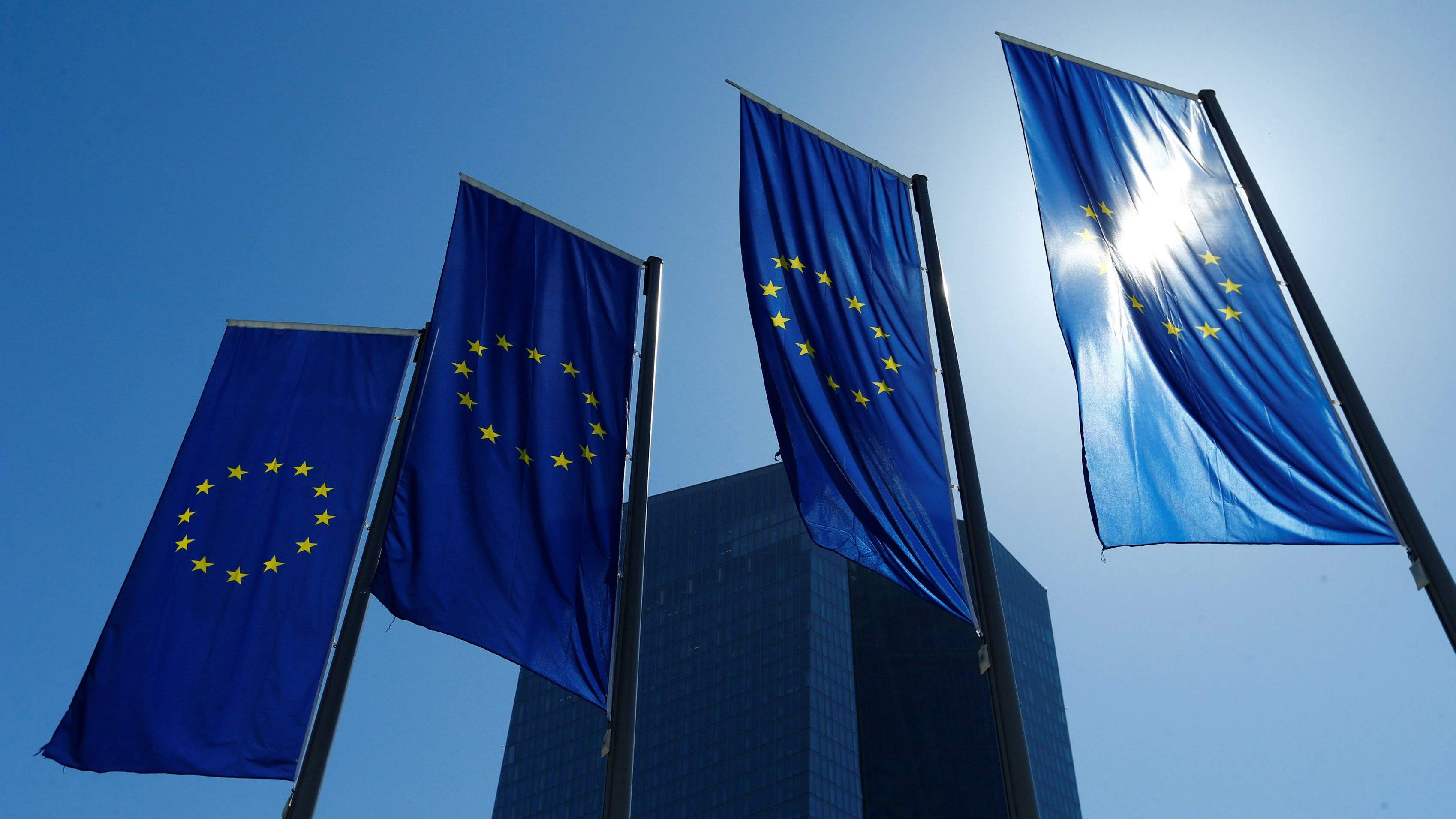
EU nations are crying out for infrastructure investment. Momentum is building behind the China-proposed Belt and Road (B&R) Initiative to develop global transport, logistics and energy networks. So is the jigsaw fitting together?
Several individual EU nations have embraced the B&R. Portugal’s Economy Minister Manuel Caldeira Cabral, for example, told CGTN in March that the initiative "makes a lot of sense to us.”
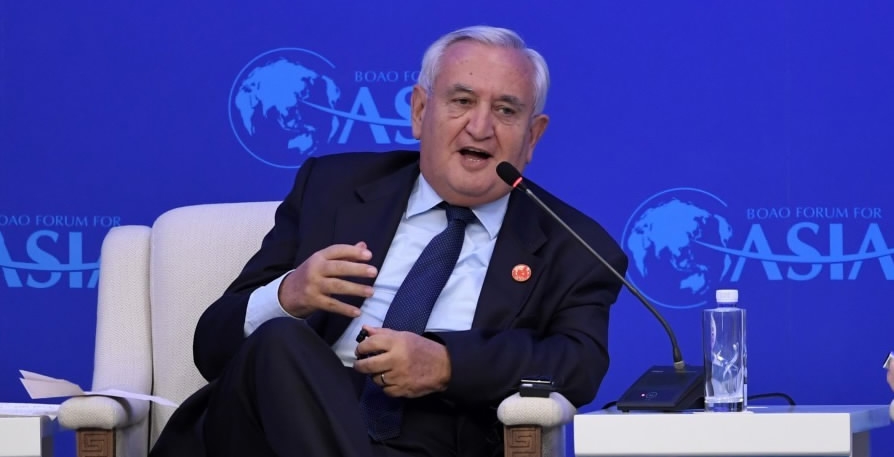
Former French Prime Minister Jean-Pierre Raffarin during the Boao Forum for Asia Annual Conference 2017. /Xinhua Photo
Former French Prime Minister Jean-Pierre Raffarin during the Boao Forum for Asia Annual Conference 2017. /Xinhua Photo
But in Brussels, the response has been a little cooler. Prior to the forum, former French Prime Minister Jean-Pierre Raffarin bemoaned a “lack of vision” from the EU in regard to the B&R, which he described to CGTN as “world project.”
Six months on, and the BFA traveled to Paris to host a two-day symposium to discuss the potential for the B&R in Europe. Raffarin (a BFA board member) again extolled the initiative’s virtues, at an event also attended by Zeng Peiyan, a former vice premier of China’s State Council.
“Each economy in Asia and Europe is a beautiful, unique and indispensable piece of a jigsaw puzzle. As long as all the pieces are perfectly connected, there will be a splendid vista of prosperous Asia and Europe.”
- Zeng Peiyan, former vice premier of China’s State Council
In his speech to the forum, Zeng conceded that some “may have little understanding or even some concerns about an initiative in its early stage”, citing possible “misgivings” about “its purposes, the investment returns, environmental protection and exports of production capacity.”
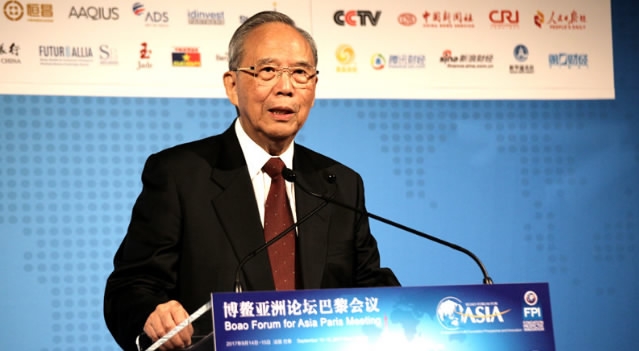
Zeng Peiyan, former vice premier of China’s State Council. /BFA Photo
Zeng Peiyan, former vice premier of China’s State Council. /BFA Photo
The B&R is “not a geopolitical tool, neither is it a foreign aid program,” he said. “Instead, it is a platform of practical cooperation and an initiative for interconnected development.”
Did Juncker reflect European ‘misgivings’?
President of the European Commission Jean-Claude Juncker used part of his State of the European Union speech in mid-September to propose screening foreign direct investment into the EU.
"If a foreign, state-owned company wants to purchase a European harbor, part of our energy infrastructure or a defense technology firm, this should only happen with transparency, scrutiny and debate."
- President of the European Commission Jean-Claude Juncker
"Closing the door will not achieve lasting development," Chinese Foreign Ministry spokesperson Lu Kang warned in response. "The losses will outweigh the gains if people resort to protectionist trade policy for short-term interests."
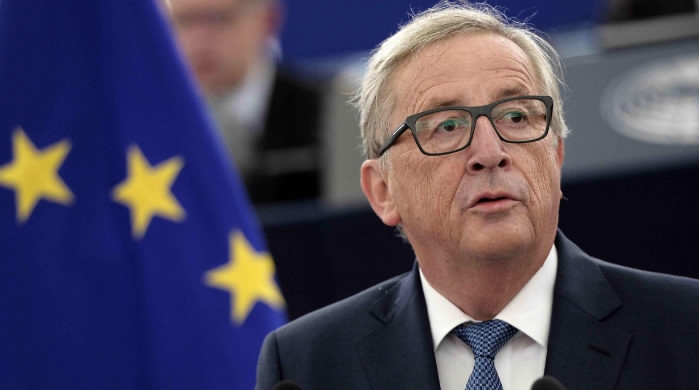
Jean-Claude Juncker. /AFP Photo
Jean-Claude Juncker. /AFP Photo
Juncker also spoke passionately about his belief in a more integrated EU post-Brexit, a vision believed to be broadly shared by re-elected German Chancellor Angela Merkel and new French President Emmanuel Macron.
At the BFA event in Paris, Raffarin suggested that the election of Macron would lead to new momentum for EU involvement with the B&R Initiative.
"President Macron is highly aware of the significance of the Belt and Road Initiative and has been urging Europe to grasp the chance to cooperate with China,” Raffarin told the forum, before calling on China and the EU to expand cooperation under the umbrella of the proposal.
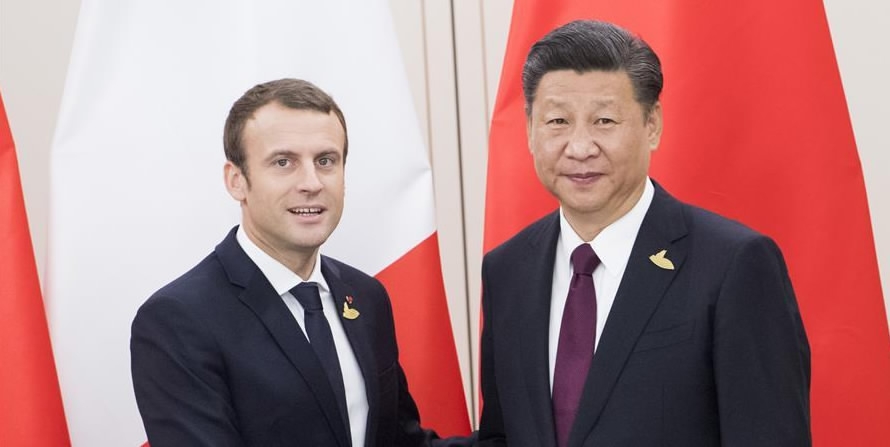
Chinese President Xi Jinping (R) meets with his French counterpart Emmanuel Macron in Hamburg, Germany, July 8, 2017. /Xinhua Photo
Chinese President Xi Jinping (R) meets with his French counterpart Emmanuel Macron in Hamburg, Germany, July 8, 2017. /Xinhua Photo
Raffarin told Xinhua after the BFA forum that China and France must work together "to reassure the worried countries, to create a climate of confidence by putting forward the fundamental principles that underpin this project: respect, reciprocity, balance. It is necessary to create confidence."
In a statement, BFA told CGTN that burgeoning demand for infrastructure in emerging economies could be complementary to European expertise in advanced technologies. “The Belt and Road will create broad prospects for Asia-Europe cooperation."
Are ‘broad prospects’ being realized?
Marc Otte, an adviser to former EU foreign policy chief Javier Solana during the latter’s time in the post, told CGTN at a recent China-EU security conference in Beijing that interconnectivity through the B&R was already happening, citing the highly visible example of long distance goods trains.
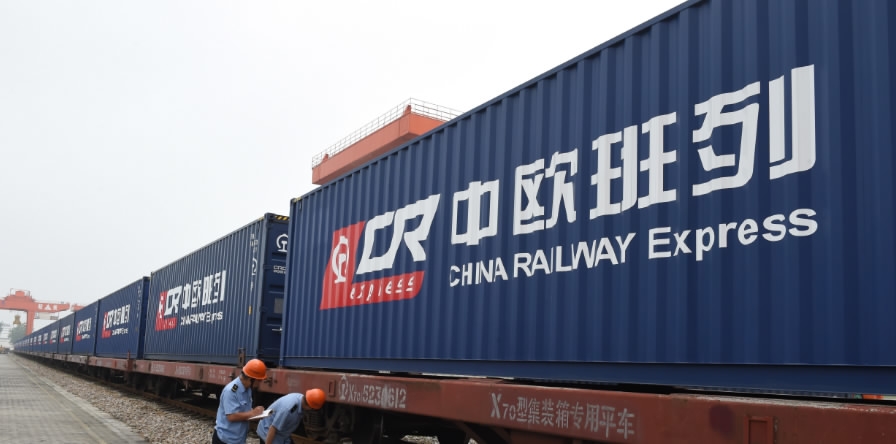
The China-Europe container trains have become a powerful support for the development of the Belt and Road Initiative. /Xinhua Photo
The China-Europe container trains have become a powerful support for the development of the Belt and Road Initiative. /Xinhua Photo
But, he added, Europe and China need to “come to an understanding about the rules, the rules of trade, the rules of investment and a level playing field.”
China is cooperating with the EU on many projects, and is attempting to synergize the B&R with the European nations’ development plans.
Overcoming the “misgivings” referred to by Zeng and establishing an “understanding of the rules” noted by Otte are perhaps the keys to a deeper embrace of the Belt and Road by the EU.
Chinese Ambassador to France Zhai Jun quoted Deng Xiaoping during a speech to BFA representatives in Paris: "Europe and Asia are in fact one continent. You are in the West, and we are in the East. There are far more things that connect us than we could ever imagine."
And if the words of Raffarin are accurate, the Belt and Road Initiative has, in Macron, a powerful advocate on the European stage.

SITEMAP
Copyright © 2018 CGTN. Beijing ICP prepared NO.16065310-3
Copyright © 2018 CGTN. Beijing ICP prepared NO.16065310-3